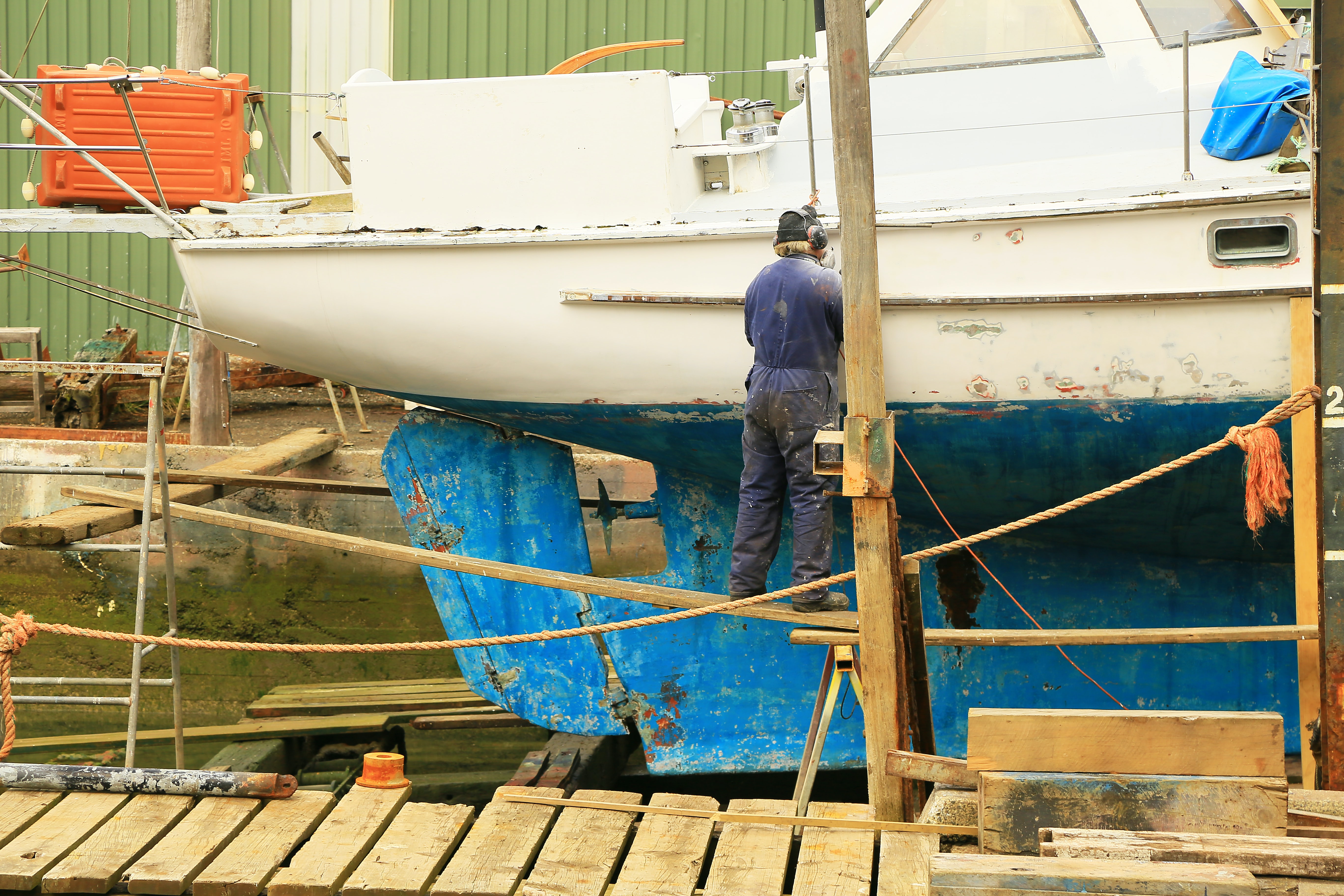Marine surveys are closely associated with insurance. They help insurance companies establish the value of the boat, as well as identify any issues regarding its condition and seaworthiness.
NAMs and SAMs Marine Surveyors
Insurers will want you to obtain a survey from a qualified professional who can provide an unbiased view of the vessel’s condition.
There are two predominant organizations to which a professional marine surveyor can belong. Both institutions are providing comprehensive training and education for marine surveyors.
The National Association of Marine Surveyors (NAMS)
The National Association of Marine Surveyors is composed of surveyors from 14 different regions, including 11 domestic, 2 Canadian, and 1 in Europe.
NAMS provides highly qualified marine surveys for three major categories – Hull and Machinery, Yachts and Small Crafts, and Cargo.
- Hull and Machinery Surveyors analyze the condition, value, construction, and damage of commercial vessels, barges, propulsion machinery, cranes, and etcetera.
- Yacht and Small Craft Surveyors evaluate the condition, value, construction, and damage of yachts and smaller vessels up to 300 feet in length.
- Cargo Surveyors look at the storage, transportation, and damage to all cargo on the vessel.
Each NAMS-CMS candidate is tested in their selected discipline.
The Society of Accredited Marine Surveyors (SAMS).
The Society of Accredited Marine Surveyors includes over 1,000 surveyors across the globe. Accredited Marine Surveyors must be currently conducting marine surveys, with at least five years of prior experience.
Surveyor Associates are marine surveyors who do not yet meet the prerequisites to be Accredited Marine Surveyors.
All SAMS-AMS candidates are tested in their selected field of accreditation.
» MORE: NAMS and SAMS Marine Surveyors
Common types of marine surveys
- Condition and Valuation Survey: This is a pre-purchase survey. It is extremely thorough and conducted before finalizing the purchase of the watercraft. The surveyor will perform operational testing of all systems and equipment, both in and out of the water.
- Limited Condition and Valuation Survey: This survey typically includes all the tests and evaluations of the full condition and valuation survey, but it can be done with the vessel either afloat or ashore.
- Damage Inspection: This type of inspection is used when the vessel sustains significant damage due to collision, grounding, or severe weather. It will evaluate the cause, nature, and extent of the damage.
- Appraisal: An appraisal used to determine the fair market value of the vessel.
- Sea Trial: This kind of assessment will evaluate the performance, handling, seakeeping, and reliability of the vessel while afloat. The surveyor will observe the machinery and other systems while taking the watercraft through its paces.
Most marine surveys will generally evaluate the following systems of the vessel:
- The nature of the construction
- Basic vessel design
- Cockpit designs
- Propulsion machinery
- Auxiliary machinery and generators
- Equipment - such as bilge pumps, navigation lights and horn, steering system, and engine controls
- Fuel system
- Electrical systems
- Plumbing systems
- Safety equipment
Marine Survey FAQs
What is a marine survey?
A marine survey provides a detailed inspection of your boat. It is used to determine the vessel’s condition and seaworthiness.
The person who conducts these examinations is called a marine surveyor. They will assess, monitor, and develop an extensive report on the condition of the vessel. Marine surveyors will also inspect any gear or equipment that extends beyond the structure of the vessel. This is to ensure compliance with various requirements and standards.
Do I need a marine survey?
A marine survey allows you to determine whether the boat meets the requirements to properly safeguard you and your passengers. A boat in poor condition poses a safety risk to all guests and potentially other boats.
Surveys are typically required for older, larger boats.
Surveys can also help you determine whether you are carrying sufficient coverage based on the vessel’s value and condition. This can help protect you from a significant financial loss.
» MORE: Marine Surveys - The Top 5 Things to Know
What do marine surveyors do?
Surveyors will be able to identify any issues with the boat that may prove costly down the road. Many of these problems are invisible to the naked eye but stand out like a sore thumb to professionals.
Where can I find a marine surveyor?
You can visit these websites to find a qualified marine surveyor in your area: The Society of Accredited Marine Surveyors and The National Association of Marine Surveyors.
Each includes lists of surveyors that showcase their experience, qualifications, and specializations, if applicable.
You can also refer to local recommendations for reliable surveyors near you.
Do I need to attend the survey?
Yes. Most surveyors will want you present during the assessment. Otherwise, you can have someone familiar with the vessel there.
If you are a prospective buyer of the vessel, it will be very helpful to see any areas of concern before the purchase is complete.
How often do I need to get a marine survey?
It depends. Ideally, you want to get a survey done every 3-5 years.
If your boat is older, however, you may want to stick to it every 3 years. It will give you confidence regarding its condition and whether it’s safe to operate.
How much do marine surveys cost?
Most surveyors will determine the cost based on your boat’s size, at a per-foot rate. On average, it could cost anywhere from $15 to $20 per foot.
Before agreeing to a price, ask whether the testing of mechanical, electric, and oil systems are included.

